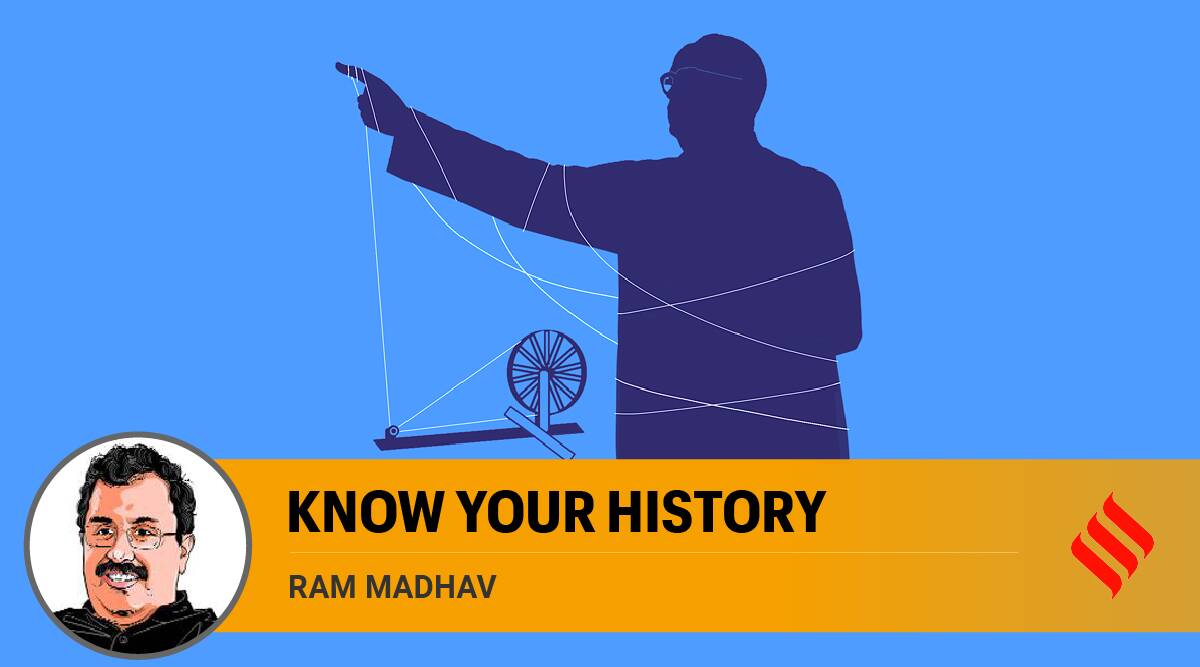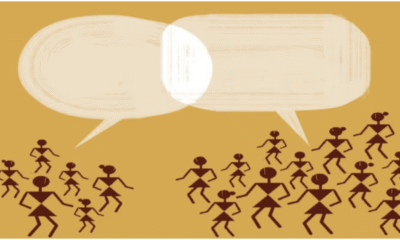
|
Getting your Trinity Audio player ready...
|
(The article was originally published by Indian Express on December 4, 2022. Views expressed are personal.)
On December 6, 1273, a famous Catholic saint, Thomas Aquinas, went into a final trance. Aquinas is remembered for his medieval endeavour to inject rationalism into Catholic theology. Reason and reform were the core of Thomistic thought. After facing a lot of criticism, Aquinas was finally canonised as a saint by the Vatican after 50 years. December 6 is also the “Mahaparinirvan” day of an Indian reformist leader B R Ambedkar. Like Aquinas, Ambedkar too fought for reason in religion. He too faced rejection but finally found his place in history.
Ambedkar continues to be at the centre of a legacy battle. During his recent Bharat Jodo Yatra at Mhow in Madhya Pradesh, the birthplace of Ambedkar, Congress leader Rahul Gandhi accused the RSS of showing false sympathy for him and “backstabbing” him.
These allegations smack of an urge to appropriate the legacy of a great reformer and deny it to others. Before talking about backstabbing, it may be important to ponder over the “front stab” that Ambedkar had to endure at the hands of the Congress leadership not just while he was alive but even after his death.
When Ambedkar breathed his last on December 6, 1956, Prime Minister Jawahar Lal Nehru rose in the Rajya Sabha to deliver an obituary address. Paying glowing tributes to the deceased is a custom in obituary addresses. But Nehru’s address was different. “Ambedkar, from many many years, had been a very controversial figure”, Nehru contended, insinuating that he pursued convictions “with rather greater intensity than perhaps required”. While Ambedkar was the “symbol” of the intense feeling of the suppressed classes in India, “some of us thought” that he “overdid the expression of that feeling”, Nehru said in an accusatory tone.
Leaders of the Congress should know this aversion of their leadership to accepting and supporting Ambedkar. Gandhi to Nehru to Patel – almost all the senior leaders of the Congress had demonstrated strong reservations about Ambedkar for one reason or the other. Ambedkar too never hid his aversion for the Congress and its leadership.
Gandhi and Ambedkar had profound disagreements. Even in 1955, seven years after Gandhi’s death, Ambedkar would argue in a BBC interview that Gandhi was no “Mahatma”, not even “from the point of view of his morality”. Gandhi too conveyed his reservations over Ambedkar’s views in 1946 in a letter to Sardar Patel. “One has to be very careful indeed” in dealing with Ambedkar, Gandhi cautioned.
Gandhi’s ideological differences with Ambedkar date back to the Second Round Table Conference in 1932 when the British agreed to Ambedkar’s proposal of separate electorates for Dalits. Gandhi went on a hunger strike forcing Ambedkar to the negotiating table, which resulted in the famous Poona Pact in December of that year. But Gandhi never hated Ambedkar. On the contrary, he invited Ambedkar to write his views in the Harijan in early 1933. Ambedkar argued in that article that “there will be outcastes as long as there are castes” and said that “nothing can help to save Hindus and ensure their survival in the coming struggle except the purging of the Hindu faith of this odious and vicious dogma”.
When Nehru was unwilling to accommodate Ambedkar in the interim government in 1946, Gandhi, at the prodding of a young Dalit leader of the Congress, Jagjivan Ram, intervened to get him in. But that didn’t help Ambedkar much as Nehru and other leaders in Congress never displayed any empathy. Ambedkar wrote in his resignation letter from the cabinet in 1951 about the ill-treatment meted out to him by Nehru. In fact, Congress leaders didn’t make way for Ambedkar in the 1946 election from Mumbai. His Scheduled Castes Front (SCF) was roundly defeated by Congress candidates. Jogendranath Mondal, an SCF leader from Bengal, came to Ambedkar’s rescue and got him elected from Bengal with the Muslim League’s help.
In the Constituent Assembly, Ambedkar found it tough to pursue his agenda for Hindu social reform and the upliftment of SCs. At one point, Sardar Patel told the “Scheduled Caste friends” to “forget what Ambedkar has done”. Ambedkar’s life-long desire to reform Hindu society through the Hindu Code Bill was blocked by Congress at every stage, from the Constituent Assembly to Parliament, after 1950.
After Independence, the Congress leadership allowed the memory of Ambedkar to fade away until it was resurrected by Kanshi Ram in the 1980s through the DS4 movement. None of the Congress governments in the first 40 years thought it prudent to offer Ambedkar a place of honour, prompting his grandson Prakash Ambedkar to accuse them of “failing to do justice” to him. It was only in 1990 that the United Front government supported by the BJP honoured him with the Bharat Ratna.
On the other hand, Ambedkar maintained cordial relations with Hindutva icons that Rahul Gandhi detests, like Savarkar and Swami Shraddhananda. In a letter to Savarkar, Ambedkar conveyed his “appreciation of the work you are doing in the field of social reform”. In a special issue of his Janata magazine in April 1933, Ambedkar heaped praise on Savarkar saying that his contribution to the Dalit cause was as decisive and great as that of Gautama Buddha himself.
Interestingly, Ambedkar was one of the first to use the word “Hindutva”. In a statement issued in 1927 on the issue of temple entry, Ambedkar said “Hindutva belongs as much to the untouchable Hindus as to the touchable Hindus. To the growth and glory of this Hindutva, contributions have been made by Untouchables”.
Ambedkar and Savarkar were opposed to religious orthodoxy among Hindus, whereas that orthodoxy was upheld by some of the Congress leaders of those times. It is important for Congress leaders to understand this history to learn who backstabbed whom.
They should also understand that when more than a lakh RSS volunteers fought against the draconian Emergency imposed by Indira Gandhi in 1975-77, they were protecting the dignity of the Indian Constitution, and when Mohan Bhagwat called the caste system as a thing of the past, he was resolutely pursuing Ambedkar’s agenda.



